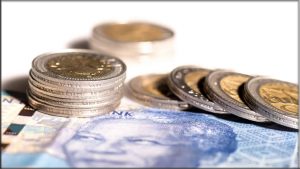Finance Minister Tito Mboweni’s budget for the 2020/21 fiscal year was delivered against the backdrop of a synchronised global economic slowdown, with the International Monetary Fund forecasting GDP growth forecast at 3.3% in 2020.
The US economy is expected to grow at 2%, with China’s economy slipping to 6% GDP growth from 6.1% in 2019. These are the results of the protracted US-China trade dispute, the decoupling in the European Union and quite recently; the spread of the coronavirus which adds to mounting fears of a further slowdown of the Chinese economy and ultimately, global growth expectations.
Global risks to growth forecasts
South African business supply chains are exposed to the effects of the coronavirus as many businesses source electrical equipment, machinery, clothing and textiles products inter alia to the tune of US $17.09 billion, according to trade data in 2018.
According to National Treasury, South Africa is expected to grow by 0.9% in 2020 and uptick to 1.6%.
Inflation is anticipated to average 4.6% over the medium-term and the current account balance to be -3.4% of GDP in 2020.
The total consolidated expenditure will amount to R1.95 trillion in 2020/21’ resulting in a budget deficit of 6.8%. Debt-service costs remain the fastest growing expenditure item over the medium-term at an annual average growth rate of 12.3%.
The anticipated March 27 ratings outcome by Moody’s has informed the structuring and messaging of this budget. As such, non-interest spending will decline over the medium-term, yet consolidated government spending is set to grow at an average annual growth rate of 5.1% due to mounting debt service costs.
Baseline government programmes and the public sector wage bill have been earmarked to reduce the expenditure burden by the state, a move that has not been well received by workers leading up to the finalisation of the public sector wage negotiations.
The credibility of the budget with respect to the consolidation of the fiscal position lies squarely on the R160 billion public sector wage reductions; a difficult trade-off to make.
Some relief for income earners
However, on the household consumption side, income earners who earn R460 000 per annum will enjoy a tax rebate of R3 400 per annum. Individuals who earn R10 000 per month will enjoy a tax rebate of approximately 1.5% in this fiscal year. These personal income tax rebates are recognition that South African consumers are constrained and demand is weak as reflected in the retail numbers. Core inflation was reported at 3.8% in January 2020, which is indicative of a flat household consumption environment.
Corporate income tax was not raised. However, to deal with base erosion and profit shifting, the South African Revenue Service (SARS) will be limiting corporate interest deductions and strengthen its ability to crack down on illicit financial flows from high net worth individuals and multi-nationals.
Resistance from trade unions
R129 billion has been apportioned over the medium-term towards state-owned companies. Given that the premise of fiscal consolidation is pinned on savings from the public sector wage reductions, it remains to be seen what the real debt management plan in this budget will be with respect to state-owned companies.
The market has received this budget as a friendly one. Yet, for this fiscal allocation of resources to really mean anything with respect to stimulating demand, driving supply-side policies and addressing the growing unemployment number and flat growth; it will lie in the quality of expenditure with less leakages and fiscal dumping.
In the video below, the Congress of South African Trade Unions Parliamentary Coordinator Matthew Parks slams proposed public sector wage bill cuts:
Ndumiso Hadebe is an Economist and Director at Pax Africa Holdings






